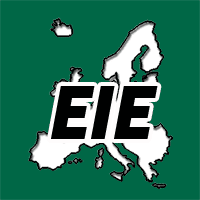The EBI is a partner of the DigiComPass Project. Digital Competencies (DigComp) are crucial for citizens today and in the future. In Europe, the average level in DigComp of well-educated citizens is approx. 56%. Several countries (Italy, Cyprus, Spain, and Greece) are below, and Austria is at the average (Source: DigComp Framework 2.0, P 19). The COVID-19 situation showed that digital competencies are a must for all people, in all generations, and in all living conditions and situations. Increasing the digital competencies of Citizens is a challenge.

The graphic shows the data of several European countries ordered by the percentage of digital skills from 2021. The distribution of countries shows partners with higher values (than the European average) and lower values. This enables to learn from each other and to develop optimized strategies to create and implement training courses for >European citizens.
Project priorities
The project focuses on two specific priorities of the Erasmus+ Project.
① Improving the competencies of educators and other adult education staff
The aim of the project is to develop a modern accreditation model for digital competencies (based on the DigComp 2.1 Framework for Citizens). This needs an effective Innovation and training boost for the trainers (as well as the training facilities).
Therefore, this project develops staff competencies that lead to overall improvements in the provision, targeting, and effectiveness of adult education. This includes assessment of prior knowledge and skills of adult learners, better and more innovative teaching methods, as well as strengthening the supporting role the adult education staff has in motivating, guiding, and advising learners in challenging learning situations.
The DigiComPass enables the participating training organizations to increase the capacity and readiness of institutions to manage an effective shift toward digital education. The project will implement the purposeful use of digital technologies in education and training for teaching, learning, assessment, and engagement. This will be done in the frame of the technical concept of the implemented Flipped Learning 3.0 Framework. This implementation of the framework is a base for the development of digital pedagogy and expertise in the use of digital tools for teachers and trainers, including accessible and assistive technologies and the creation and innovative use of digital education content.
Objectives and concrete results
The major objective is to create a course package for digital skills similar to the European Computer Driving License (ECDL), but with a specific focus on the DigComp framework 2.2 and free from licence fees. The offer of the modular DigiComPass courses enables digital transformation through the development of digital readiness, resilience, and capacity.
Since COVID-19 we know that these competencies are crucial. Social distancing is the best practice example of the importance of deeper going digital competencies, for example, to deal with authorities (eGovernment) or to be able to use the Digital Signature to access eGovernmental and other services. All these issues are described in the DigComp framework and will be part of the new training of DigiComPass.

Major objectives and concrete results
Pilot courses will be created (and evaluated) on the mentioned items, together with an appropriate recognition model for adults. These developments are summarized in an “Adult Education package” called DigiComPass.
The objectives are to create a recognition & course model for Digital Competences with
- A pedagogical framework (based on Flipped Learning 3.0)
- A quality-enhance framework for course creation, implementation, and evaluation
- Pilot courses covering the items of the DigComp 2.1 Citizens framework (https://goo.gl/T8TpJ9)
- A recognition model for Europe defining the curriculum, training environment, evaluation and grading, and consistent certification (which could be used internationally as well). The model fits perfectly with the Europass CV. This model should be practicable globally as well.
- Use of modern digital badges (open badges system) for the recognition model
A “floating guide” to define the way of adaptation for future developments
A transferability guide for School Education
